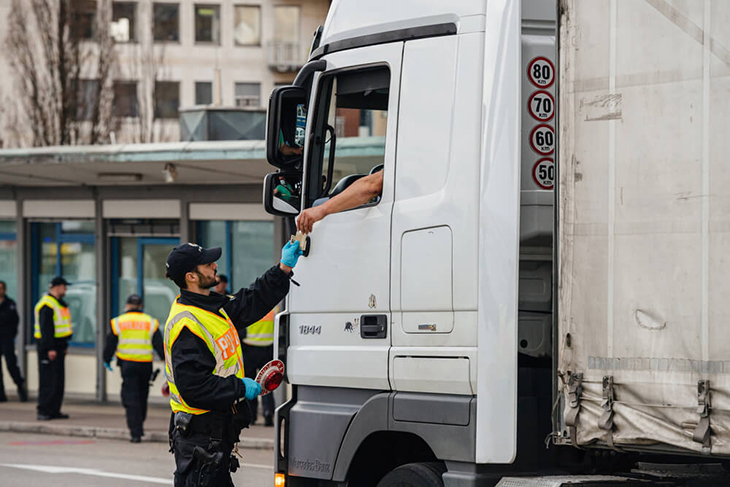
The Federal Motor Carrier Safety Administration and the US Department of Transportation oversee and manage laws and regulations for all commercial truck drivers and trucking companies. Any violations of the laws lead to penalties and fines.
Some regulatory infractions can lead to criminal charges for drivers or increase the risk of 18-wheeler accidents. Whenever a truck accident happens, an investigation begins to establish if the driver was guilty of any regulatory transgressions.
Driving Hour Restrictions
Updated federal laws stop truckers from driving more than 11 hours if they have been on duty for 10 hours previously. They cannot drive more than 14 hours once they clock in for work. The drivers cannot operate the commercial truck after 60 hours out of 70 hours within the seventh day out of an eight-day schedule.
The regulations are enforced to reduce the risk of exhausted driving which is a predominant cause of 18-wheeler accidents. A truck driver who violates federal trucking regulations may cause serious accidents for others on the roadways. Victims of the accidents get started by contacting an attorney now.
Stopping at Weigh Stations
Trucking statutes require the drivers to visit weigh stations to ensure that they don’t have an unbalanced or oversized load on the rig. These overloaded trucks cause the rig to jackknife and cause serious accidents with multiple injuries. Any driver who doesn’t stop when the outlets are open is liable for any accident injuries they cause.
Passing the DOT Eye Examination
Even after hopeful truck drivers receive their commercial driver’s license, they must visit the US Department of Transportation through their prospective employer for a comprehensive eye examination. Trucking companies face liabilities if they allow operators on the road without corrective lenses when they suffer from any vision loss. The examination is more stringent than a standard vision assessment.
Must Not Commit Traffic Infractions
While most moving violations are punishable by a citation, more dangerous infractions place everyone on the road at risk. Commercial drivers like others are not allowed to consume alcohol before or during their driving shift. Controlled substances, including stimulants that keep the operator awake for longer hours are prohibited, and any driver suspected of a DUI faces criminal charges and penalties if convicted.
Distracted driving has become a serious problem with 18-wheeler operators, too. Many trucking companies have policies for using cellular phones or smartphones while driving. The only exception is using hands-free or voice-to-text services. However, in high-traffic areas, even these disruptions could increase the risk of an accident and serious injuries.
All drivers must maintain control over the vehicle appropriately in all weather and road conditions. Many trucking companies require defensive driving courses for their operators to mitigate accident risks.
Federal laws apply to all commercial drivers to keep them and others safer on the roadways. A violation of the regulations increases the risk of 18-wheeler accidents and leads to penalties for the driver and the trucking companies. Fines are the most common punishment for infractions, and the company could lose accreditation if they continue to infringe on federal laws.
All drivers must maintain an electronic logbook that shows their driving hours, and investigators review the details if an accident happens. Many trucking companies offer financial incentives for drivers to violate these laws, but the risks could lead to fatalities. By reviewing the current laws, victims determine if an 18-wheeler driver violated federal laws during an accident.


